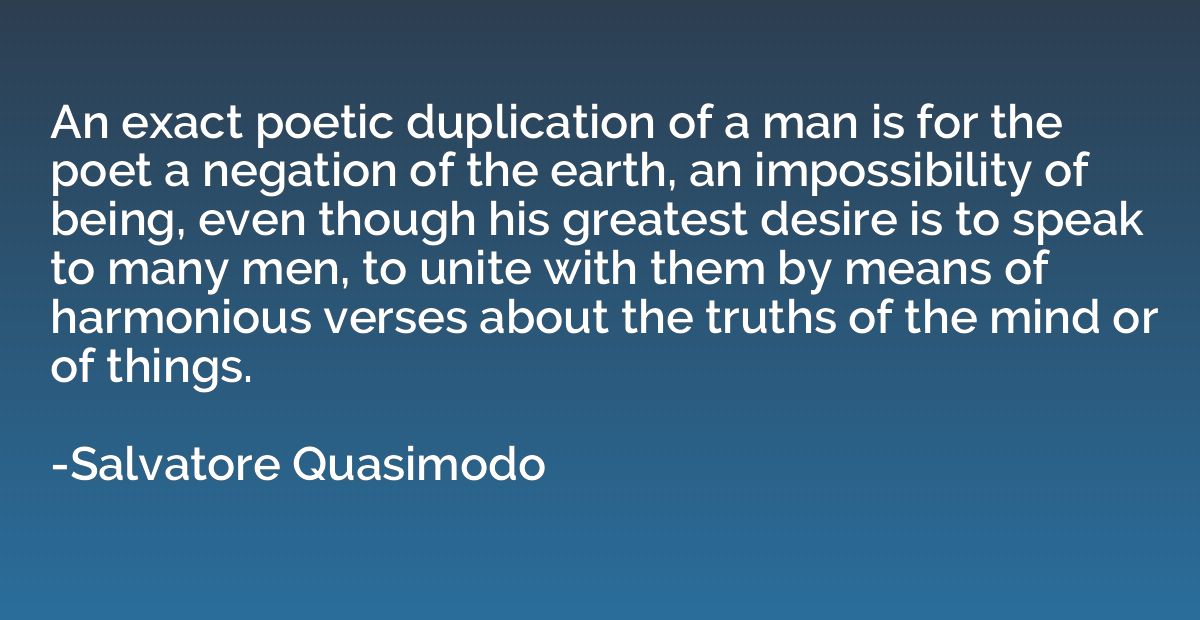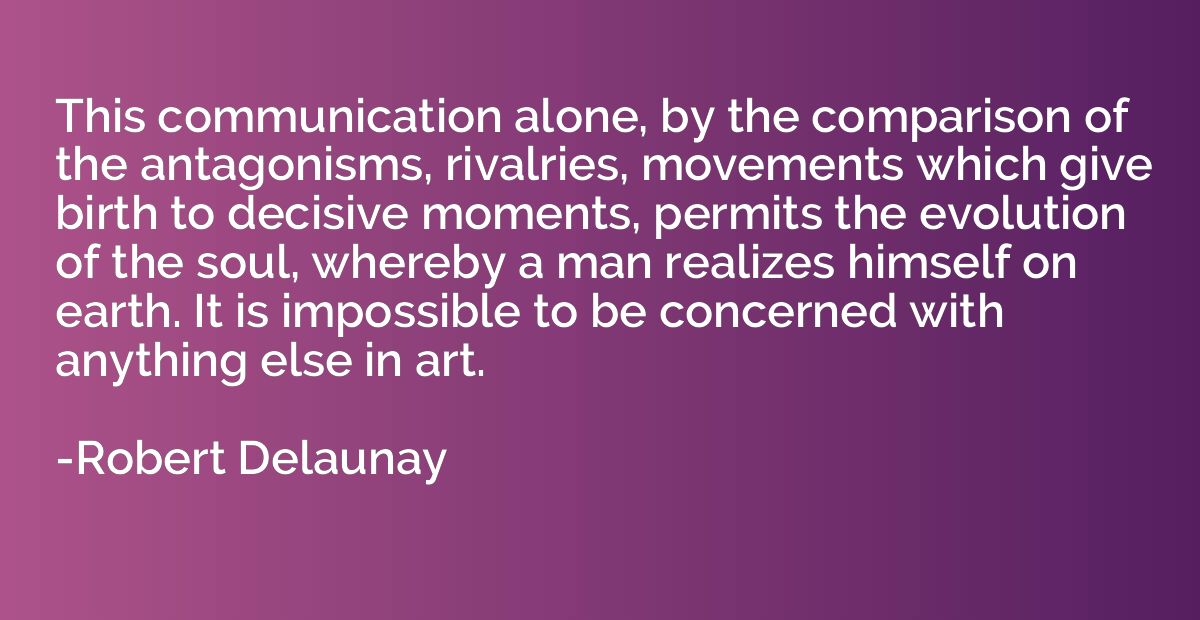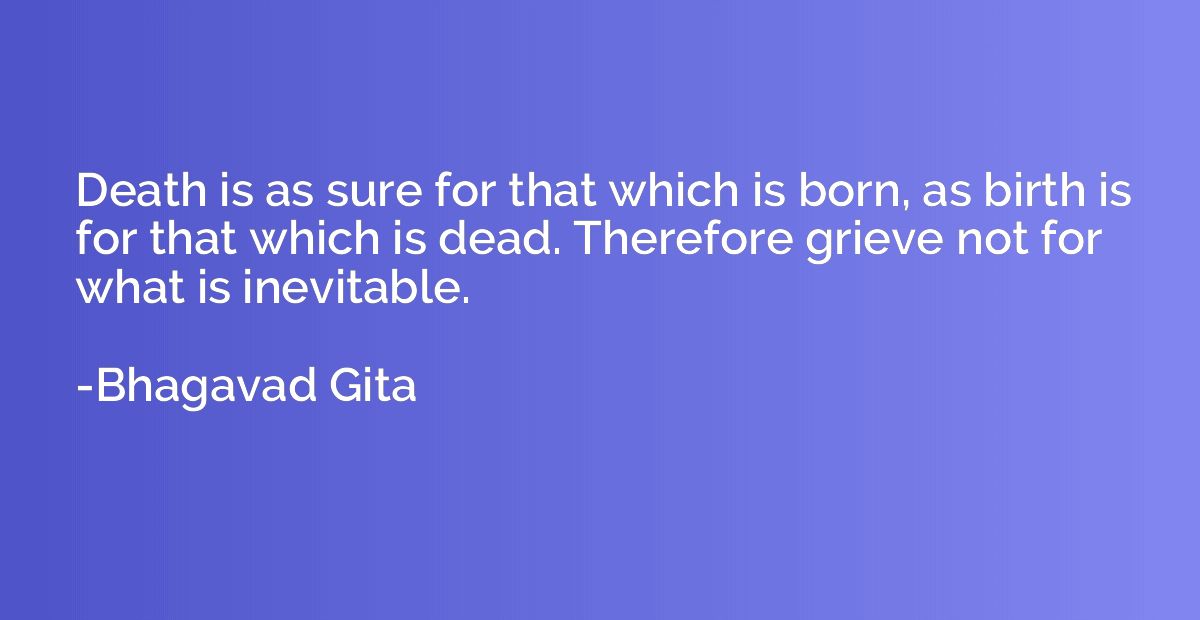Quote by Salvatore Quasimodo
An exact poetic duplication of a man is for the poet a negation of the earth, an impossibility of being, even though his greatest desire is to speak to many men, to unite with them by means of harmonious verses about the truths of the mind or of things.

Summary
This quote suggests that a poet's ultimate goal is to connect with and speak to a wide audience through their poetry. However, the poet understands that creating an exact representation of an individual through their words would deny the diversity and richness of human existence. By aiming to capture the truths of the mind and the world, the poet strives to bring people together and ignite harmony, acknowledging the impossibility of a perfect duplication of any individual's experience.














